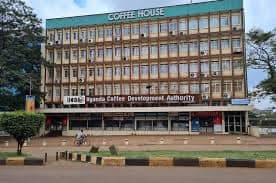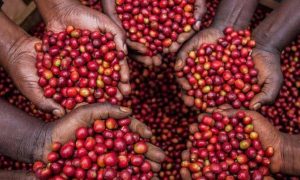
#OutToLunch: Rationalization without efficiency is an exercise in futility
OutToLunch: Rationalization without efficiency is an exercise in futility By Denis Jjuuko The rationalization of some of the government agencies back into their parent ministries has been the talk of town of the last few weeks with the Uganda Coffee Development Authority (UCDA) carrying the day. See, coffee is the lifeblood of more than two million households in the country. The government has said that that agencies being rationalized are inefficient and incompetent cost centers that bleed the national treasury doing the same work the ministries could do. That duplication is their other silent name. There seems to be no middle ground for those who propose rationalization and the same could be said of those who oppose it. But if efficiency is what government hopes to achieve through rationalization, there is a long way ahead. The work isn’t insurmountable but there is a lot that will have to be done. I think the first one is the issue of payment. We are told that staff of agencies were earning several times their colleagues in the ministries. That could be true. I sometimes see some of the CEOs of the agencies being driven around in powerful SUVs with lead or back up cars and police in black uniforms opening their doors or carrying their handbags. Somebody said that public servants in the ministries were jealousy of the executives in agencies. Maybe they were. If payment is such an issue, there is need to ensure that civil servants are paid salaries equivalent to what they would earn in the private sector and then put in place the same tough requirements in place. Regular assessments should be done and those that fail to meet them should be let go. Performance contracts should replace the method known as permanent and pensionable jobs because if anyone knows that they are assured of their job for life regardless of performance, they will do whatever they want. Performance contracts will end the culture in some government offices where people arrive in the morning, place their jacket on the back of their swivel chairs or place a second pair of their eye glasses on the desk to give the impression that they are around the building whereas they are not. Civil servants that work a few hours a day and enjoy a four-day working week should also be dealt with. Service delivery shouldn’t be just a topic of discussion in seminars and newspaper columns. It must be practiced and lived. That would require that officers are given a certain number of days to have a file in their office before they send it to the next person. Technology is available where each folder or file that goes to somebody’s office is tracked to know how long it has remained in that particular office and then asked why the file is still on their desk. That level of tracking would also reduce on the number of missing files in government offices. Efficiency would ensure that no officer has hundreds of files on their desks for months or even years or unopened emails. So free gmail and yahoo emails should be replaced with official ones that can be tracked. Time management is critical if government is to be efficient. Meetings must start and end on time. There is no reason to give somebody an appointment of 10.00am and make them wait up to 3.00pm and then inform them that you wouldn’t be able to see them or that you didn’t even come to the office. There is no reason why government should take two years to procure a contractor for an infrastructural project like a road or electricity dam and then the contractor takes years to start working and a decade to complete a project that could be done in nine months. Payments to contractors shouldn’t take the same process it would require one to go to heaven! One of the reasons we are so poor is our lack of investments in key social services like education, health and transport. Many Ugandan civil servants have to send their kids in expensive schools and then abroad for university, do annual medical checkups in India, Kenya or Turkey yet they don’t earn well enough to afford them. That leads to corruption. Because of lack of public transport, government officials must have vehicles which are expensive to buy and maintain yet they should be driving their own. Rationalization without being efficient will not improve service delivery and drive the country out of poverty. The writer is a communication and visibility consultant. djjuuko@gmail.com

